Sources inside Tibet tell RFA that Tulku Hungkar Dorje’s monastery is prohibited from holding memorial services for him.
By RFA Tibetan
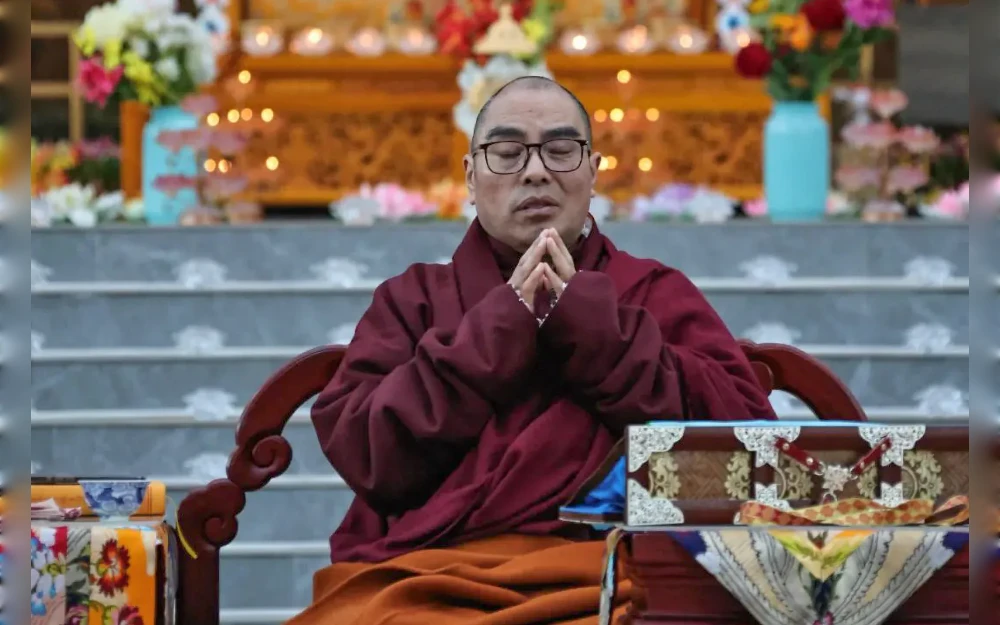
The Tibetan government-in-exile called Tuesday for an independent investigation into the death of an influential Tibetan Buddhist leader said to have died in Vietnam, where he was reportedly in hiding from the Chinese government.
On April 3, Lung Ngon Monastery in Gade county (Gande in Chinese), Golog prefecture, Qinghai province, issued a statement confirming that its abbot, Tulku Hungkar Dorje, 56, had died in Vietnam’s Ho Chi Minh City on March 29 due to poor health. The monastery’s statement gave no further details. His followers say he had been missing for eight months.
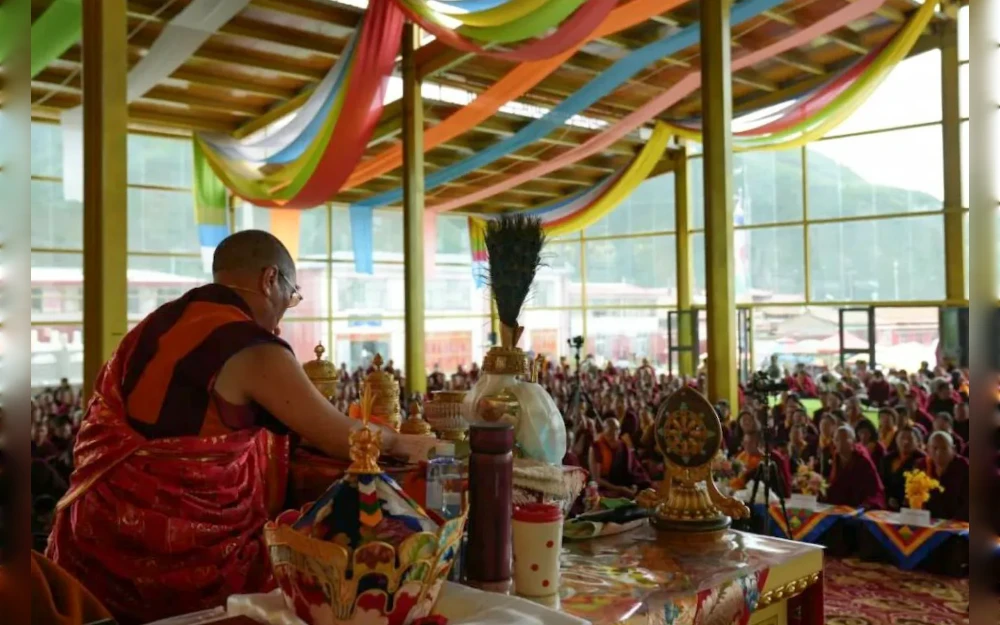
Chinese authorities’ forbid the monastery and local residents from holding public memorial services and prayers for the abbot, underscoring the sensitivity of his death, three sources from the region told Radio Free Asia on Wednesday. The sources requested anonymity because they feared reprisals.
The Central Tibetan Administration – the exiled government based in Dharamsala, India – and human rights groups contend that Tulku Hungkar Dorje was arrested from his hotel room in Ho Chi Minh City on March 25 in a joint operation by local police and Chinese government agents. He was reportedly transferred to Chinese custody on March 28, where he mysteriously died the same day, they added.
“(This raises) serious concerns about cross-border security cooperation, transnational repression, and human rights violations that demand immediate and thorough investigation, as well as accountability from both Vietnamese and Chinese authorities,” Tenzin Lekshay, spokesperson for the CTA, said.
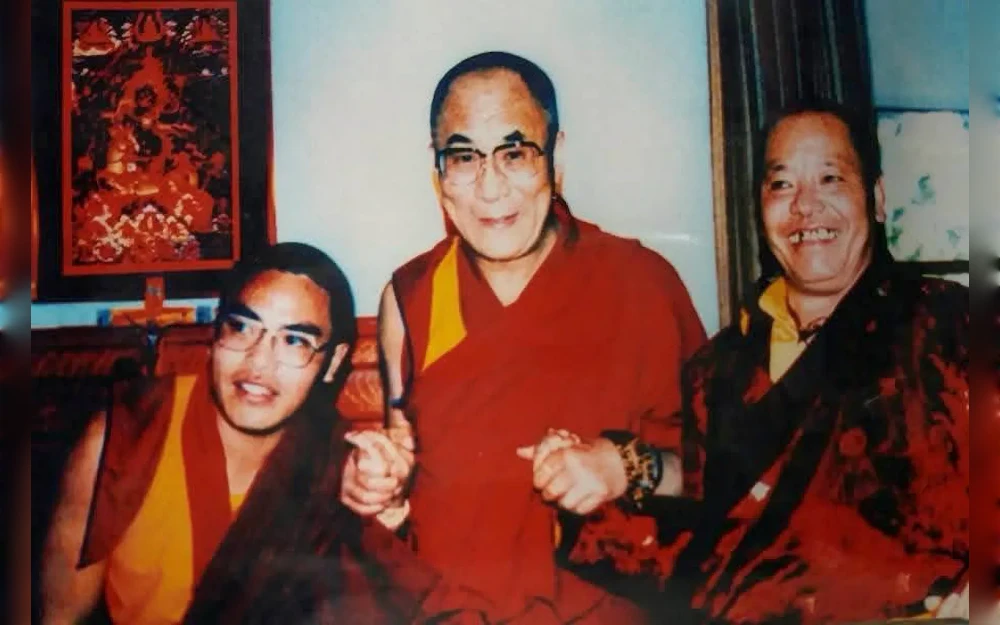
Tulku Hungkar Dorje was a renowned religious teacher, philanthropist, and educator. He disappeared last August after he called at a public teaching that July for the preservation of Tibetan language and culture.
Rights groups say that Tulku Hungkar Dorje was also subjected to multiple rounds of interrogations before his disappearance after he did not fully comply with Beijing’s wish to host the Chinese-appointed Panchen Lama, Gyaltsen Norbu, at his monastery.
He was also accused of failing to implement Chinese government policies in schools he had established for children of Tibetan nomadic families in Golog, sources in the region said. He had also composed a long-life prayer for Tibetan spiritual leader, the Dalai Lama, whom China regards as a separatist, they added. (The Dalai Lama actually advocates for a “Middle Way” that accepts Tibet’s status as a part of China and urges greater cultural, religious, and language rights and freedoms under the provisions of China’s own constitution).
Escape to Vietnam
Faced with mounting pressure from the Chinese government, Tulku Hungkar Dorje fled to Vietnam, where he was reportedly in hiding since September 2024 until the Chinese authorities arrested him in late March with the help of the Vietnamese government, Tibetan rights groups said, citing sources familiar with the matter in the region.
Lhamo Tashi, president of Dhomay Cholka Association, a non-governmental organization representing Tibetans from the historical Amdo region of Tibet, said: “Given the grave nature of these events, we call for an independent international investigation into the circumstances of Tulku Hungkar Dorje’s death. Such an investigation must be conducted transparently, in accordance with international legal standards, and with full access for neutral observers in Vietnam.”
The Vietnamese and the Chinese government did not immediately respond to RFA’s requests for comment.
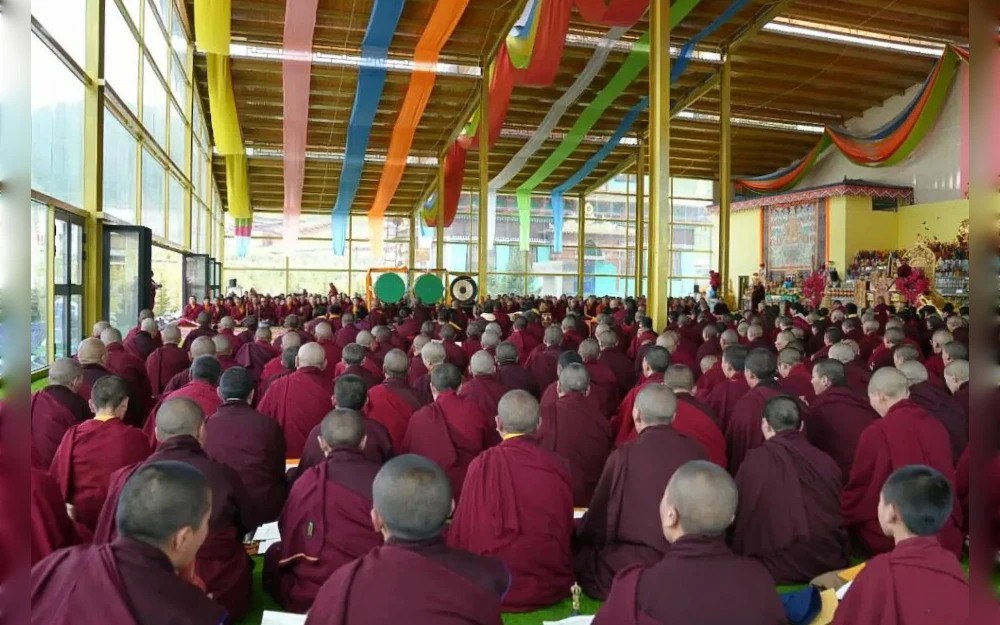
Beyond Tibet, Tulku Hungkar Dorje has a large following of Buddhist disciples across the world, including in the United States, Russia, Australia, Canada, and Vietnam. In Vietnam, his followers at the Longchen Nyingthig Center issued a short note lamenting his passing.
In recent years, there has been a growing interest in Tibetan Buddhism in Vietnam, with the establishment of multiple Dharma meditation centers, pagodas and even the world’s largest Tibetan Buddhist Prayer Wheel that is located at Don Duong District, Lam Dong Province in southern Vietnam.
Experts say the visits by Tibetan Buddhist leaders in Vietnam are tolerated, sometimes even promoted. That’s an unusual exception to communist party intolerance of religious groups that are not state-sanctioned and is perhaps meant to counter criticism of that policy. However, experts say Vietnam avoids any publicity around Buddhist leaders who are under the scrutiny of the Chinese government to avoid diplomatic problems with Beijing.
Suspicions of foul play
Ju Tenkyong, director of the Amnye Machen Institute, a Dharamsala-based Tibetan center for advanced studies, said that earlier this month, five Tibetan Buddhist monks from Golog’s Lung Ngon Monastery and six Chinese government officials traveled to Vietnam to retrieve Tulku Hungkar Dorje’s body, which is reportedly at Vinmec Central Park International Hospital in Ho Chi Minh City.
However, the five monks were barred from participating in an emergency meeting that was convened on April 5 at the Chinese Embassy in Vietnam, where only the six Chinese officials were allowed, he said. Nor were they allowed to view the body, despite being initially told they could do so, he added.
“The officials demanded that the monks sign documents confirming Tulku’s death, but the monks refused, saying they could not sign until they had seen his body. The fact that the body was not shown to the monks and disciples raises serious suspicions of foul play,” Tenkyong told RFA.
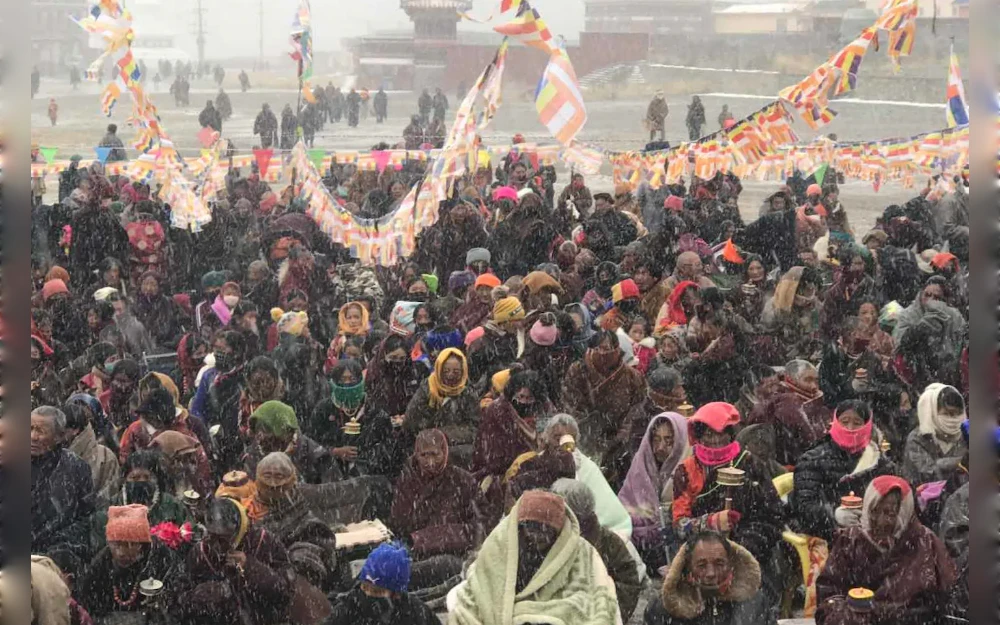
The Tibetan government-in-exile also called for the body of Tulku Hungkar Dorje to be immediately handed over to Lung Ngon Monastery to allow for proper last rites to be performed as per Tibetan Buddhist traditions.
“It is noteworthy that the suspicious death of Tulku Hungkar Dorje represents a troubling escalation in China’s systematic targeting of influential Tibetan figures who promote Tibetan culture, language, and identity,” said CTA spokesperson Lekshay. “His case highlights the ongoing suppression of human rights in Tibet, where people live under constant fear of arrest for the slightest expression of Tibetan identity.”
Chinese authorities closely scrutinize prominent Tibetan Buddhist lamas and businessmen involved in philanthropy, as well as poets, writers, and religious teachers who advocate for the preservation and promotion of Tibetan language and culture. Such figures often face strict surveillance and are vulnerable to arbitrary detentions and long prison terms.
Photos thrown to the ground
The local sources who spoke to RFA on Wednesday said officials in Gade County, where the monastery is located, have instructed local township and village leaders to strictly prohibit Tibetans from sharing any images or information related to Tulku Hungkar Dorje online.
“Initially, the government told Lung Ngon Monastery they could hold memorial services, but fearing large public gatherings, they suddenly imposed restrictions,” said one of the three sources.
Since April 2, authorities from Golog Prefecture and Gade County have been jointly conducting strict inspections at the monastery and surrounding villages, with police patrolling these areas day and night, the sources said.
“When the monastery school attempted to display Tulku’s photo and hold memorial services, Chinese officials arrived, threw the photos on the ground and forcibly prohibited any religious activities,” another of the sources said.
In its 2025 Annual Report, the U.S. Commission on International Religious Freedom (USCIRF) recommended that both China and Vietnam be designated as a ‘Countries of Particular Concern’ for engaging in systematic, ongoing, and egregious violations of religious freedom.
USCIRF said religious freedom in Vietnam remained poor in 2024, with the Vietnamese government continuing to wield its 2018 Law on Belief and Religion to strictly control religious affairs through state-sponsored religious organizations.
Edited by Tenzin Pema and Mat Pennington.
“Copyright © 1998-2023, RFA.
Used with the permission of Radio Free Asia,
2025 M St. NW, Suite 300, Washington, D.C. 20036.
https://www.rfa.org.”












